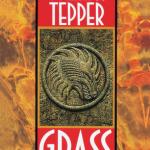This post is part of a series walking through the first volume of Abraham Kuyper’s Common Grace.
Continuing to think about man’s pre-Fall nature as well as the nature of the Tree of the Knowledge of Good and Evil (which Kuyper will eventually take to calling “the tree of conscience”), Kuyper here argues that prior to the Fall human beings did not have a conscience.
But in order to understand this, we need to get what a ‘conscience’ really is. The world teaches that the conscience is a sort-of “divine oracle” that tells us what God wants us to do:
“As the people of the world want to delude us into believing, conscience would be a kind of Urim and Thummim within us, a divine oracle. We would only need to inquire from that oracle to know what God wants from us. And also when we go against the will of God, the oracle rgukes us inwardly. So anyone who did what his conscience dictated and refrained from doing what his conscience forbade was on this basis a man after God’s heart. And armed with that conscience-religion, people allowed themselves to push aside Scripture, the law of God, and the gospel…
It is striking, therefore, how this boasting in consciencearose at preciesely the time when rationalism was busy trampling faith, and how even now people are must busily occupied with the conscience in [those] circles where faith in God has in fact been lost.” (191)
By contrast, the Reformed theologians have taught that conscience is not an inner “capacity”, it is not a power like the power of reason or the will. It is rather a “continually recurring activity” that weighs our whole selves against God’s law. (191-192)
Put in these terms, it’s pretty clear that such judgment wasn’t necessary pre-Fall. In this sense, Jesus likewise did not have a “conscience.” What Adam and Jesus both had was faith. Not saving faith, but rather “faith” as communion between the image of God in man and the Divine image. This is where Adam lived.
The same applies to the covenant, which we are told by Hosea explicitly, and by Genesis implicitly. Adam lived in a covenant based on doing, or a covenant of works. This covenant of works is most familiar to us through the form in which it was refreshed (but not begun) at Sinai. Genesis 1-3 is short on details about the covenant, but we can see its structure clearly in place. What’s more, a covenant implies an organic bond governed by ordinances between two independent bodies. To violate the ordinances doesn’t just break the bond, it brings death by ending the organic nature of the bond.
Once the organic bond is broken, restoring the covenant relationship requires an “unnatural” and mechanical salvation. This comes by grace through the cross and works ultimately to restore the organic relationship, though the means remains mechanical:
“But even though the cross saves the world, the cross remains unnatural, and we are not back on the path of righteousness until our Savior receives a name above every name, and when we hear that every knee shall bow before him. But no matter how seriously this relatinoship may be disrupted temporarily, Scripture nevertheless prophesies and faith speaks into your soul that in the end the original relatinship will be restored again, and the turbulence of chaos cannot come to rest before the internal and external states are once again reintegrated.” (197)
The cross is an unnatural intrusion into a natural world that has been corrupted by sin and deserves the very natural consequence of death.
Dr. Coyle Neal is co-host of the City of Man Podcast and an Associate Professor of Political Science at Southwest Baptist University in Bolivar, MO













